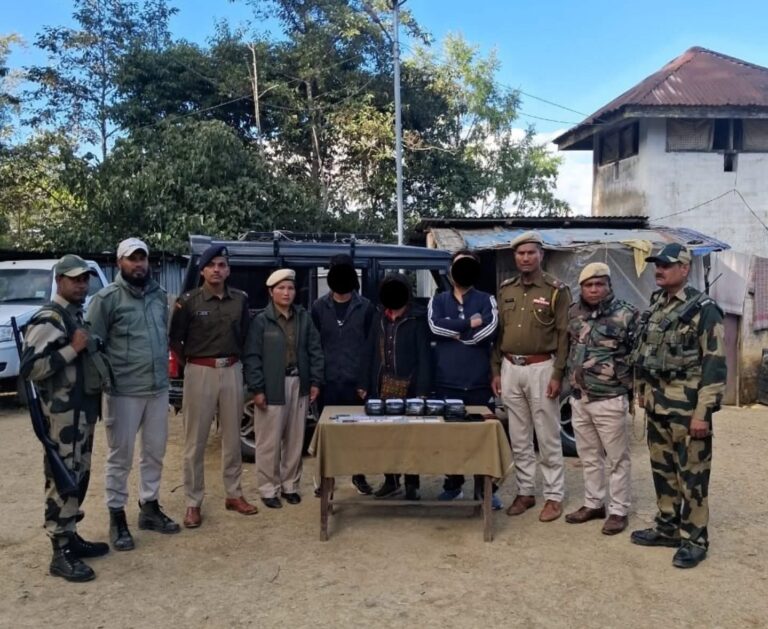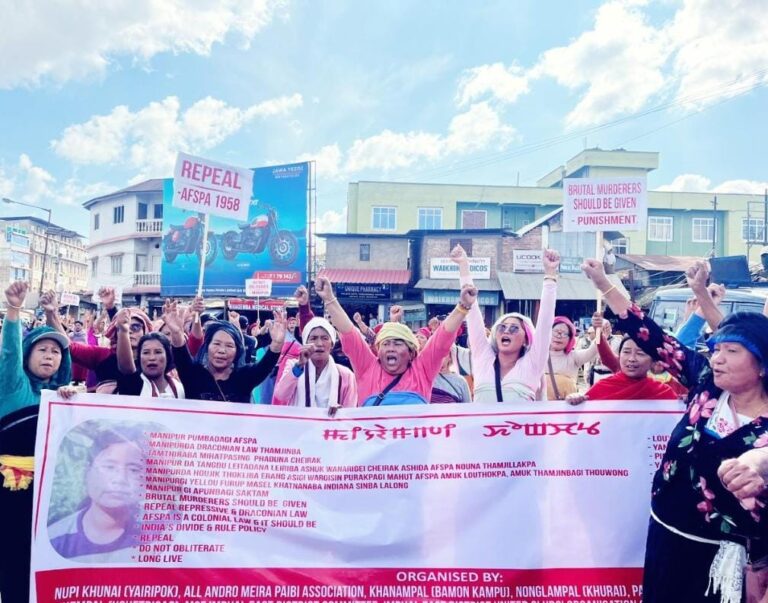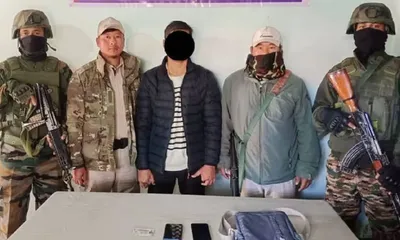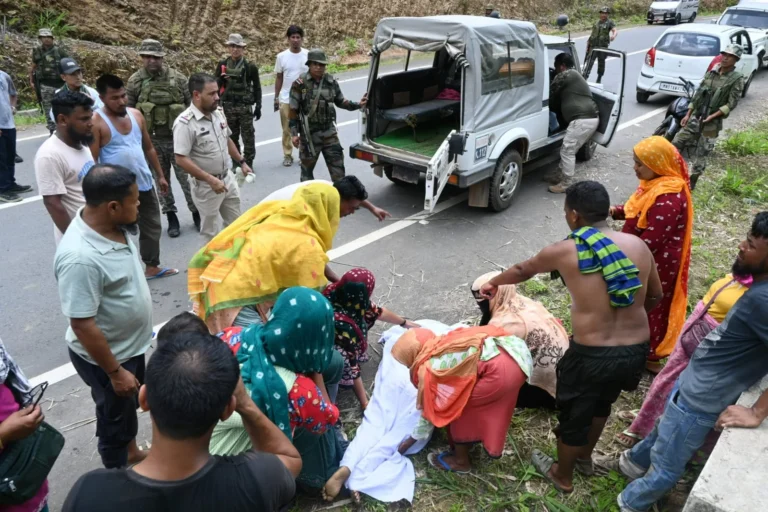Restoring Harmony in Manipur: How Former CM Ibobi Singh Sees Congress as the Key to Unity
Summary
Former Chief Minister Okram Ibobi Singh recently emphasized that the Congress party is committed to restoring peace and unity in Manipur. He criticized the BJP for fostering division and hindering community harmony, stressing that only Congress can bring stability through inclusive governance. Singh also voiced concerns over the lack of local elections, blaming it on undemocratic BJP policies that, according to him, disrupt community representation and growth.
Full Article
Introduction: Congress’s Vision for a United Manipur
In a region as culturally diverse as Manipur, maintaining peace among different communities is no small feat. The state has long been home to a mix of ethnic groups, all with unique traditions, languages, and values. Yet, in recent years, Manipur’s social fabric has faced increasing strain. With former Chief Minister Okram Ibobi Singh asserting that the Congress party is the only force capable of ensuring harmony, the conversation around peace and unity in Manipur has become more urgent than ever.
Through a closer look at Singh’s perspective, this article will explore Congress’s strategies for fostering unity in Manipur, the challenges posed by the BJP’s policies, and the path forward for communal harmony in the state.
The Congress Party’s Commitment to Peace
Since its inception, the Congress party has advocated for peace, not just in Manipur but across India. This vision of unity is more than just a political promise; for many, it represents a practical approach to governance, one that values inclusivity and cooperation over division. Ibobi Singh argues that Congress’s principles resonate with Manipur’s needs. He points out that the party’s focus on inclusive governance aligns well with the state’s pluralistic society, where diverse communities must feel valued and protected.
Inclusivity as a Core Principle
Inclusive policies are crucial for a society like Manipur’s. Singh’s emphasis on unity through Congress policies is not just rhetoric; it reflects a commitment to tangible initiatives aimed at bridging cultural and ethnic gaps. For instance:
- Economic Empowerment for All: Congress’s policies aim to provide equitable opportunities across communities, promoting jobs, education, and healthcare to elevate the entire population, rather than favoring specific groups.
- Cultural Recognition and Respect: By recognizing the unique identities of each community, Congress works toward a society where every individual feels respected and represented.
- Engagement at the Grassroots Level: Community outreach and engagement are foundational to Congress’s approach, allowing leaders to address specific local concerns that can foster a stronger sense of unity.
The BJP’s Approach: Fueling Divisions or Building Bridges?
In contrast to Congress’s strategies, Ibobi Singh suggests that the BJP’s recent policies have deepened rifts within Manipur. From communal conflicts to economic disparities, the BJP’s approach has often been criticized as being at odds with the state’s communal harmony. According to Singh, the BJP’s policies have not only ignored the unique needs of Manipur’s diverse population but have also, in some instances, exacerbated tensions among communities.
Polarization and Lack of Representation
One of Singh’s primary criticisms of the BJP lies in their handling of representation, particularly at the grassroots level. A striking example of this is the absence of local body elections, a decision that has sparked widespread criticism.
- Democratic Deficit: Local elections provide a platform for smaller communities to voice their concerns and elect leaders who truly understand their challenges. The absence of these elections undermines this process and leaves many feeling unrepresented.
- Policy Disconnect: Without local representation, policies are often implemented from a top-down perspective, with little understanding of or sensitivity to local nuances, which can alienate communities and create distrust.
Understanding the Role of Local Elections in Maintaining Unity
In a democratic setup, local elections are essential to maintaining a responsive and representative government. In Manipur, they play a critical role in providing a voice to underrepresented communities. Singh argues that the delay in local elections under the BJP government is not only undemocratic but detrimental to unity.
Building Trust Through Representation
Local elections give communities the power to elect leaders who are familiar with their unique struggles, fostering trust in the government. When local representatives are elected, citizens are more likely to feel that their voices matter. This connection between communities and leaders is essential for preventing misunderstandings and promoting harmony.
- Encouraging Open Dialogue: When people feel they can engage with their leaders, dialogue becomes a tool for resolving conflicts.
- Strengthening Community Bonds: Elected representatives, particularly at the local level, understand the complexities of their own communities, making them better equipped to foster cooperation.
Communal Harmony and the Role of the Congress Party
To maintain peace in Manipur, Singh suggests that Congress aims to promote understanding among the various communities, from the Meiteis to the Nagas, Kukis, and others. The party’s approach includes initiating programs that not only support economic growth but also enhance cultural exchange and mutual respect.
Programs for Cultural Integration
A hallmark of Congress’s strategy for Manipur is the support of programs that foster cultural integration. By encouraging inter-community dialogue and cultural exchange, Congress hopes to bridge divisions and build mutual understanding.
- Educational Initiatives: Programs that introduce students to different languages, traditions, and histories of neighboring communities are essential in building early appreciation and respect.
- Economic Projects: Congress has championed job creation and infrastructure projects that encourage collaborative efforts between communities, enhancing cooperation and interdependence.
Ibobi Singh’s Vision for a United Future in Manipur
As the former Chief Minister, Ibobi Singh has a unique perspective on what’s required to keep Manipur united and prosperous. In his view, the key to lasting harmony is ensuring that every community has a voice and feels valued in the state’s governance. According to Singh, the Congress party is prepared to tackle Manipur’s challenges by prioritizing inclusivity, fair representation, and sustainable development.
Sustainable Development as a Path to Peace
Economic opportunities have a profound impact on communal relations. When communities have access to jobs, resources, and education, the overall prosperity can ease tensions that often arise from competition for limited resources. Singh envisions a Manipur where development projects benefit all communities, creating a shared sense of progress and purpose.
Conclusion: A Call for Unity and Democratic Representation
The ongoing debate between Congress’s and BJP’s approaches to governance in Manipur highlights broader questions about representation, community trust, and social harmony. Ibobi Singh’s message underscores a need for policies that do not merely impose solutions from above but build bridges through understanding, representation, and inclusivity.
In today’s rapidly changing world, Manipur stands at a crossroads. Will it pursue a path that prioritizes communal harmony and representation, or continue along a route of division? For Singh and the Congress party, the answer is clear.
FAQs
- What does Ibobi Singh believe is the primary reason for Manipur’s communal tension?
He attributes it largely to policies that lack inclusivity and democratic representation, particularly under BJP leadership. - How does Congress plan to promote unity in Manipur?
Through inclusive governance, local representation, and programs that foster cultural understanding among different communities. - Why are local elections important for peace in Manipur?
Local elections provide representation for smaller communities, helping ensure policies are sensitive to diverse needs and preventing alienation. - What role does economic development play in communal harmony?
Economic development can reduce tensions by providing resources and opportunities that benefit all communities, fostering interdependence. - How has the public reacted to the lack of local elections?
Many feel that it undermines democratic values and leaves communities feeling unrepresented.





